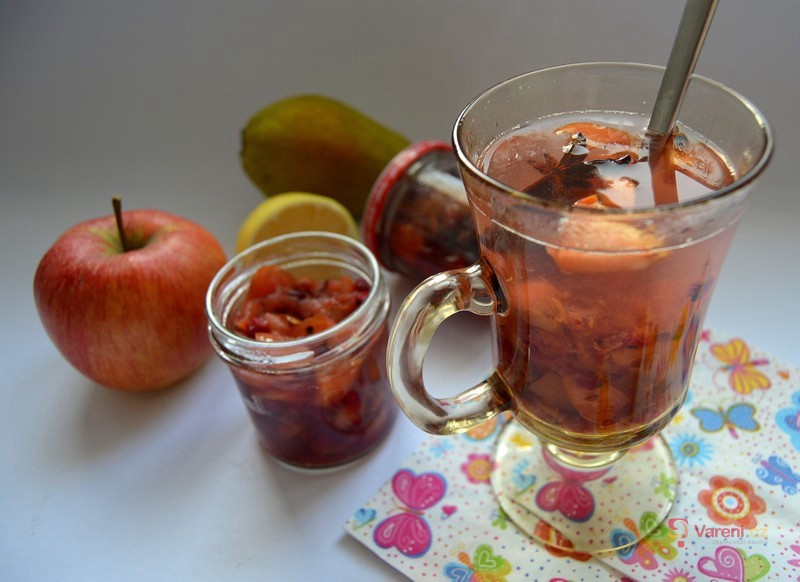The name means “baked tea” and it is just as popular on Christmas markets in the Visegrád countries as Glühwein (mulled wine) is in Germany. It probably isn’t sold where you live but you can make it at home.
Sterilize some jam jars.
Take all sorts of warm wintery fruit (apples, pears, oranges, plums, raisins, grapes, strawberries, cherries, mandarines, blackberries, blueberries, currant, raspberries, figs, anise, lemons) and chop it into small pieces, like 8x8x8 mm at most. Remains from juicers are OK. Add sugar (300 g/fruit kg) and cinnamon (1 tsp/fruit kg), perhaps some spices (such as clove).
Preheat your oven to 180-220 °C.
Bake in an open roasting pan for 30 minutes. Stir every 5-10 minutes.
(Optional) add 100 ml/fruit kg rum and mix it in while the fruit is still hot.
Fill the jars, wipe their edges, screw on the lids and leave them to cool upside down.
To make the tea, put 1-2 tablespoons of the mix into a mug with 250 ml of hot water. Once you’ve drunk the fruity tea, use a teaspoon to eat the fruit.
You may argue that it is actually food, and point taken. However, for some reason this is the thing I think of when someone says “beverage”.
🇭🇺 Sült tea / 🇨🇿 Pečený čaj

The name means “baked tea” and it is just as popular on Christmas markets in the Visegrád countries as Glühwein (mulled wine) is in Germany. It probably isn’t sold where you live but you can make it at home.
To make the tea, put 1-2 tablespoons of the mix into a mug with 250 ml of hot water. Once you’ve drunk the fruity tea, use a teaspoon to eat the fruit.
You may argue that it is actually food, and point taken. However, for some reason this is the thing I think of when someone says “beverage”.